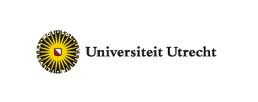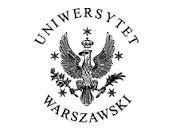Partner universities
Utrecht University (The Netherlands)

Utrecht University is a research university comprising of seven faculties, which collectively span the entire academic spectrum in teaching and research. Founded in 1636, the University is now a modern, leading institute enjoying a growing international reputation. In the Shanghai Ranking, Utrecht University ranks 1st in the Netherlands, 12th in Europe and 48th worldwide. There are about 30,000 students at Utrecht University and 7,500 members of staff. Every year, more than 2,000 international students and researchers stay in Utrecht for variable periods of time. Utrecht University is an active member of various international research and teaching networks. One of these networks is the League of European Research Universities (LERU). The LERU is an association of 22 leading, like-minded European research institutes, collaborating to influence European policy regarding research, education and innovation.
University of Oxford (The United Kingdom)

Oxford has been making a major contribution to the field of Education for over 100 years, and the Department of Education has a world class reputation for research, for teacher education and for its Masters and doctoral programmes. Our aim is to provide an intellectually rich but supportive environment in which to study, to research and to teach and, through our work, to contribute to the improvement of all phases of public education, both in the UK and internationally.
Early Childhood Education at Freie Universität Berlin (Germany)

Freie Universität Berlin is a full university with 15 departments and central institutes offering over 150 degree programs across a wide range of subjects. It is a leading research institution: Freie Universität is one of the German universities successful in all three funding lines in the federal and state Excellence Initiative and takes its place as an international network university. The Chair of Early Childhood Education is located at the Department of Psychology and Education, Prof. Yvonne Anders is holding the chair. In company with currently 12 researchers and research assistants she is working on three key areas of research: Quality of Early Childhood Education and Care and its impact on children’s development, Professional competencies of ECEC staff, International comparative analyses of ECEC quality and its impact. Several externally funded projects related to these topics are currently running (e.g. Evaluation of the governmental initiative “Early Chances”, evaluation of the long-term effects of the model-program KIDZ, Pedagogical beliefs of preschool teachers regarding mathematics education, study on the reliability and validity on an instrument to assess quality of stimulation in science). Prof. Anders is involved in several collaborations with national and international partners (e.g. German Institute of Economic Research, University of Bamberg, University of Amsterdam, University of Purdue, University of Oxford, University of Porto, University of London).Together with the Robert Bosch Foundation, Freie Universität will strengthen the research area by buildung up a research centre for “Early Childhood Education”. In the near future a further professor and several research associates will be appointed.
Aarhus Universitet (Denmark)

Aarhus University was founded in 1928. It has 34.000 students - of these approximately 15,000 Master's degree students, and about 1,600 PhD students - and close to 550 postdoctoral scholars and 6000 employees (2009/2010). The faculties cover the entire research spectrum – basic research, applied research, strategic research and research based advice to the authorities. In recent years AU has been moving up the most important university ranking lists. In 2012 the university was number 89 at the QS World University Ranking and number 116 of 17.000 universities on the Times Higher Education World University Ranking. The Department of Education (DPU) at Aarhus University was established on 1 July 2011 when the then Danish School of Education was merged with other parts of Aarhus University to form the Faculty of Arts. The Department counts some 200 faculty, and is actively
engaged in basic and applied research and teaching of learning and competence development to all parts of Danish society. Thus, the department maintains a strong focus on all aspects of education, and as part of Arts the DPUs position as the leading organization in the field of educational research is significantly improved.
HIVA - Research Institute for Work and Society - University of Leuven (Belgium)

The Katholieke Universiteit Leuven, being the 5th European university in the 2010 Leiden bibliometric ranking and 5th in the competitive European Framework Programme for research, has a rich tradition of learning and research for almost six centuries. HIVA is a multidisciplinary research institute of the KU Leuven, cofounded by the University and the Christian Labour Movement. HIVA has a staff of approx. 85 people. Its mission includes high-level policy-oriented research and consultancy in the field of education and work, as well as other areas of social and economic policy, at the national and international level. Transnational research at European level is carried out in collaboration with many European universities; HIVA is also increasingly involved in research and consulting outside Europe for international bodies such as the OECD, the ILO and the World Bank. The research team ‘Education and lifelong learning’ headed by Prof. Ides Nicaise, consists of approximately 12 people (including 4 post-docs) from various disciplines. Key themes include equal opportunities in initial as well as adult education, school-to-work transitions and education in developing countries.
Visit HIVA - Research Institute for Work and Sociaty - University of Leuven
Jyväskylän Yliopisto (Finland)

The University of Jyväskylä is a dedicated research university with well established links with top national and international research, business and innovation communities. It has a total of 6,795 undergraduate students and 8,318 graduate/postgraduate students, and total funding for research of
79,4 m euro. It belongs to over 300 international scientific networks with more than 50 on-going collaborative programmes. JYU is listed on the Shanghai list and on the Times Higher Education - QS World University Ranking list. The University is highly successful in attracting external competitive funding from both national and European funding agencies, and in the EU Framework Programme 7, it is participating in 40 projects, as a coordinator or a partner. One of the core fields of JYU is Education, learning, and teaching in the future.
University of Milan - Bicocca (Italy)

The University of Milano-Bicocca is one of the principal universities in Italy, it is the First Italian University and 25th in the World in the International list of 100 universities less than 50 years old. Constant interaction with researchers, corporations, over 200 universities in 24 countries facilitate the high educational standards of the University matching the needs of over 30,000 students. The multidisciplinary Department of Human Sciences (pedagogical philosophical, anthropological, psychological, natural science, etc) offers several degree courses, one (Early Childhood Education Sciences) to license ECEC and Primary school teachers, based on a strong ground of national and international researches and on a close collaboration with local and national schools, early childhood services and research centers (Reggio Children, CNR). From 2005 it has been activated a ‘nido’ (Nido Bambini Bicocca), characterized by an innovative management model and by experimental programs, offering a high qualifying internship context. The staff is supervised by Susanna Mantovani, who has promoted a University nidi network in Italy, and participates in several national and international researches.
Hellenic Open University (Greece)

The HOU was legally founded as an independent and wholly self–governed tertiary education institute. It operates as a Legal Entity of Public Law under the supervision of the Hellenic State, as exercised by the Minister of Education and Religious Affairs. The HOU’s mission is to provide distance education at both undergraduate and postgraduate level. For that purpose, it develops and implements appropriate learning material and methods of teaching. The promotion of scientific research as well as the development of the relevant technology and methodology in the area of distance learning fall within the scope of the HOU’s objectives. The School of Humanities is one of Hellenic Open University's first four Schools, founded according to Act Ν.2552/97. The School has eleven Academic Research Staff Members (3 Professors, 5 Associate Professors and 2 Assistant Professors).
Instituto Universitario de Lisboa (Portugal)

ISCTE - Instituto Universitário de Lisboa (ISCTE-IUL) is a high-quality public university institute and one of the most dynamic and innovative in Portugal, mainly in the areas of Management and Economics, Sociology and Public Policy, Social Sciences and Humanities, Information and Communication Technologies, and Architecture. Currently ISCTE-IUL has 400 professors and approximately 8000
students, half of which attend doctoral and master´s programs. ISCTE-IUL includes nine research units that conduct excellent research and continuously run more than 200 scientific projects with a budget of around €5.000.000/year. The research team for this project is part of the Center for Research and Social Intervention [CIS] at ISCTE-IUL. CIS is a reference in research productivity. The general aim of CIS is to provide high-quality research, research-based intervention, and scientific training in psychology within the framework of the social sciences. The most recent evaluation of all R&D centers in Portugal in 2007 indicated that CIS achieved this aim at the Excellence level, and was the only center of Psychology to do so (http://www.fct.pt/apoios/unidades/avaliacoes/2007/). As the name indicates, the researchers at CIS are also dedicated to the application of heories to the analysis and solution of social, political, and economic problems of Portuguese and European societies. This goal is entirely aligned with the proposed project. CIS reaches out to society at three main levels: policymakers, community, and the entrepreneurial world. The knowledge output of CIS is used as a basis for expert consultancy, advice, intervention, and socially useful dissemination of knowledge. The support from the centre will be essential in the pursuit of the goal to inform educational policy and practice.
Hogskolan i Vestvold (Norway)

Vestfold University College is a medium-sized Norwegian university college with approximately 4500 students and 450 employees founded in 1994 comprising of four faculties and 13 departments. HiVe offers a broad portfolio of professional studies at on bachelor's (20 programs) and master's levels (9 programs) as well as two PhD programs (one in nano- and microtechnology and one in pedagogical
resources and learning processes in kindergarten and school). The faculty of Humanities and Education is strongly research oriented and targeting at two priority areas: Centre for educational 35 texts and learning processes and, established in 2004, Centre for kindergarten research. The faculty was co-founder and is a board member of the The Norwegian National Graduate School in Teacher
Education (NAFOL) and is member of several national and international research and teaching networks.
Uniwersytet Warszawski (Poland)

Founded in 1816 the University of Warsaw (UW) is nowadays the largest and according to the various press ranking lists also the leading higher education establishment in Poland. UW offers studies in several dozen of fields of arts and sciences at 1 and 2 cycle programmes, as well as at the integrated Master programmes about for 55,400 students, for 8,800 post-graduate students and for 2.5 thousand students at 3rd cycle programme (according to the data as of 2009). UW employs 3,170 teaching and research staff being high level experts in many fields. Currently, the University has 19 faculties encompassing the natural sciences, social sciences and the humanities and offers 37 fields of studies. Additionally, there are 27 extra - departmental and inter-faculty centres and programmes. At European level the 56 European research projects were realised in FP5, about 70 in FP6, of which 5 projects with coordination. In FP7 there are so far 71 projects (of which 4 with coordination), including 5 prestigious ERC Starting Grants and 2 ERC Advanced Grants (in one of them UW is an institutional Co-Beneficiary) under Thematic Programme IDEAS, and one REGPOT Project for over 4.5 million euro. The University of Warsaw makes its best endeavours to provide professional administrative support for all international projects conducted by its scientific teams.